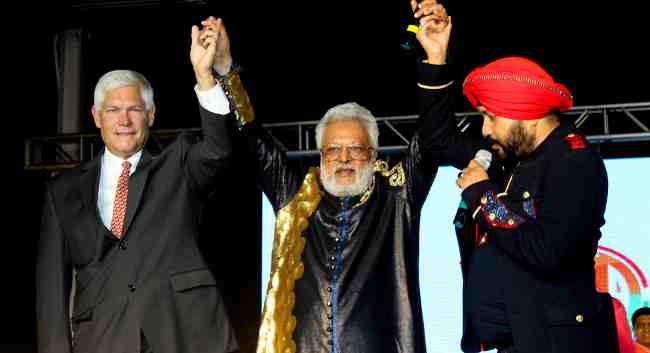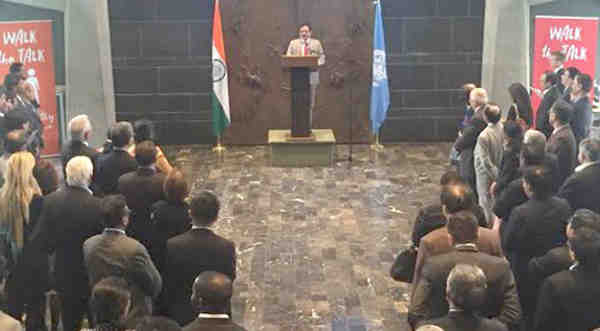Student Protests Spreading Like Wildfire in India
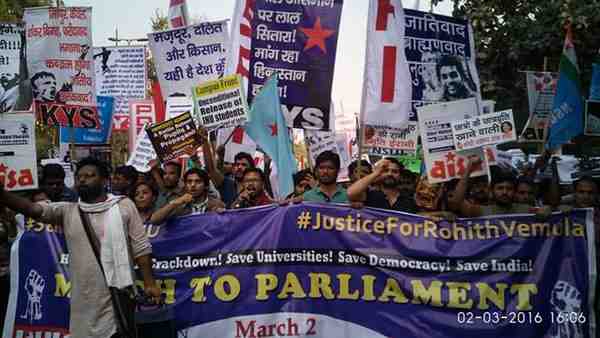
The Modi-government’s new target is the student communities in India for the RSS aims to capture the vulnerable minds of the youth in order to spread its philosophy of Hinduism in the country.
By Rakesh Raman
As the BJP government, led by Prime Minister Narendra Modi, has let loose the state police forces against the academic communities in India, students across the country have decided to face the government onslaught with a series of protests.
Spearheaded by the students of the Jawaharlal Nehru University (JNU), the students from various educational institutions launched a campaign today against the increasing excesses of the Modi government.
Calling the oppressed communities from different countries, the students in India urged all to observe March 2 as the “International Protest Day.” On this occasion, students in large numbers decided to lead a march to the Parliament building of India in New Delhi.
[ Hindu Groups Attacking Human Rights in India: Amnesty ]
Students say that the Modi government – and particularly the education minister of India – is exercising undue interference in universities to establish a Hindu hegemony in the educational institutions.
Recently, the Modi government used the police force to arrest a few students from JNU under the draconian sedition law while there was hardly any evidence against the students.
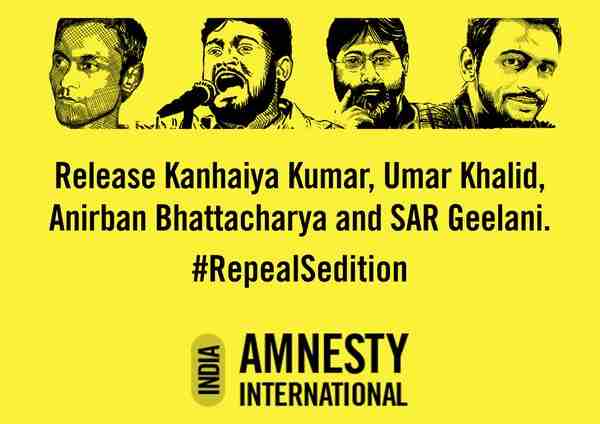
Similarly, a Hyderabad University student Rohith Vemula was forced to commit suicide under excessive BJP pressure, as he had tried to raise his voice against the state atrocities.
The student protests are spreading like wildfire in India, as the BJP government is labeling everyone an anti-national if they did not agree with the Hindu mindset of Rashtriya Swayamsevak Sangh (RSS), the parent outfit of BJP.
While Modi projects himself as a Hindu fundamentalist, he is suppressing even rational dissent with all the powers that people of India bestowed upon him in the 2014 elections when he became the Prime Minister of India.
The Modi-government’s new target is the student communities in India for the RSS aims to capture the vulnerable minds of the youth in order to spread its philosophy of Hinduism in the country.
[ Government Attacks on Students Intensify in India ]
As Modi is leading the dangerous religious campaign, he is promoting Hinduism under the garb of nationalism. In the Indian universities, he is using the student wing of BJP – Akhil Bharatiya Vidyarthi Parishad (ABVP) – to spread a culture of animosity and hatred.
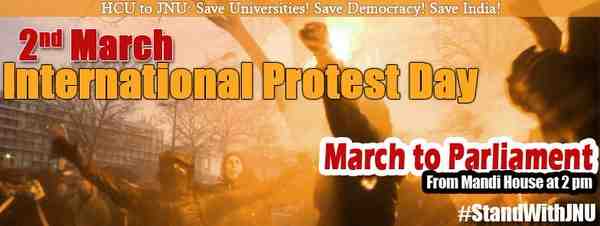
Those who oppose Modi’s divisive tactics of dividing India on religious lines are being branded as anti-nationals or terrorists under sedition charges.
Modi’s BJP is not only using the police force to quell the opposing voices of students, but it is also using hooligans on its rolls to beat BJP opponents in broad daylight while police keep watching the violence.
[ President Barack Obama Is Angry with India. But Why? ]
The latest victims of BJP’s high-handedness are a few students of JNU including the students union president Kanhaiya Kumar. These students have been arrested by the police under sedition law on the basis of a TV news clip, which many believe has been tampered with because the TV news company works under the influence of the BJP government. It is a known fact that most media companies in India are corrupt.
[ Poll: 78% Not Satisfied with AAP Government in Delhi ]
In the JNU case, Delhi police showed an unprecedented hurry in arresting student leader Kanhaiya Kumar and his two friends who were told by the police to prove their innocence, even as the law says that you are innocent till you are proven guilty.
It is believed that the Delhi police officials are acting at the instance of BJP government that wants to suppress students’ dissent by using police force. It is also said that the goons who attacked Kanhaiya Kumar and others in the court complex enjoy BJP’s support; that is why police did not arrest them.
Now the battle lines are clearly drawn between the students of India and the Modi government. The students’ struggle is expected to usher in a true democratic culture that people of India could not see in the past seven decades of the country’s independence.
By Rakesh Raman, the managing editor of RMN Company
You also can read: More Articles by the RMN Editor, Rakesh Raman




